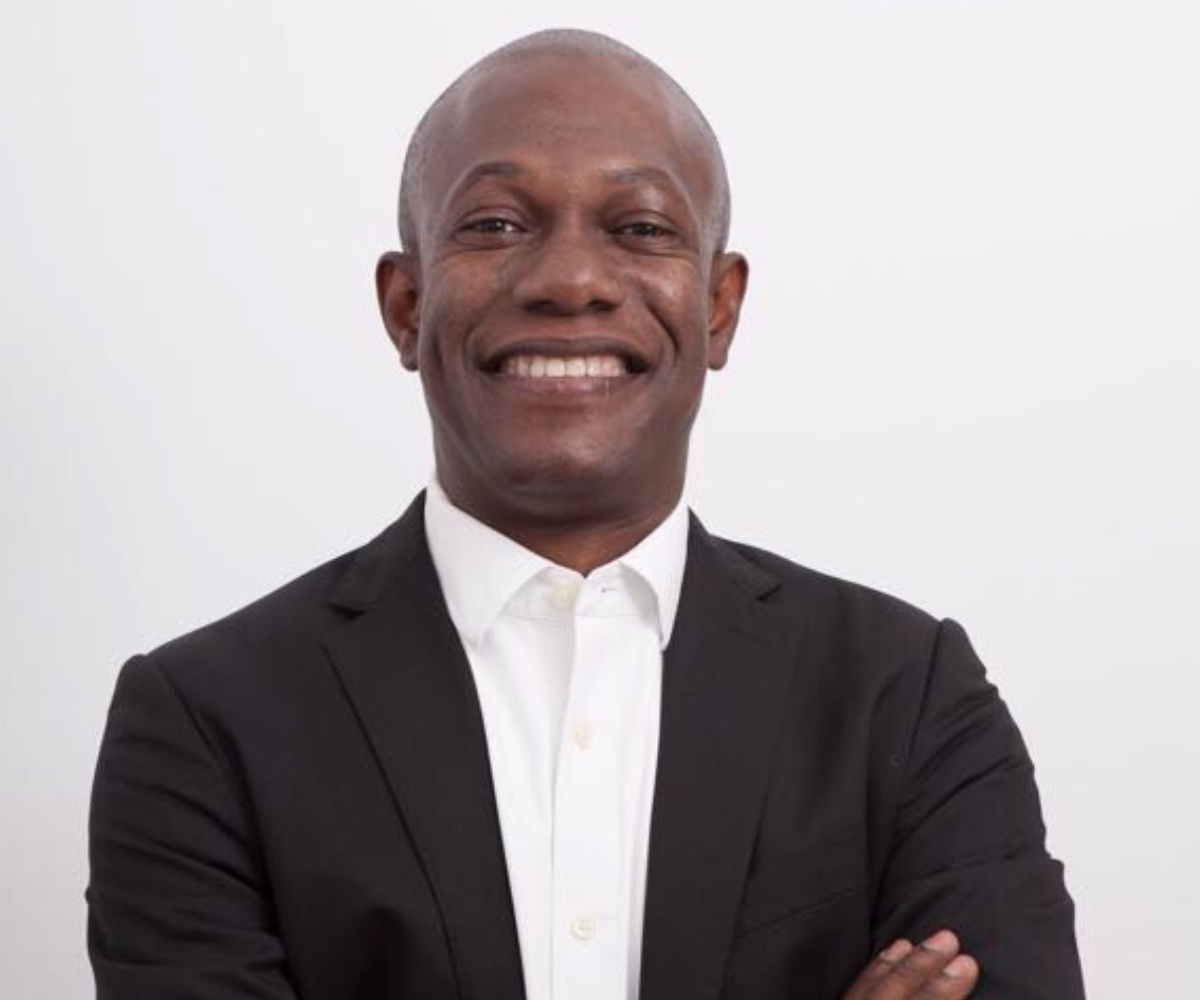
Every month, Fluency Corp reaches out to clients, friends or even family, who have relocated to another country for a job, in order to ask them why they moved, how they moved and how they made a new home for themselves in their new country. We are fascinated by their resilience and we want to support others who will be moving in the future. In these interviews, you will find authenticity, humility, and also tips for how to make your relocation smoother.
This month we spoke with Moussa Samake, as he stood on his balcony in Milan – Moussa’s expat journey has taken him from West Africa to France, then all the way to the bustle and hustle of New York City, and finally settled him in Milan with his Italian wife and children. He speaks 4 languages, which makes Fluency Corp very proud of him!
Meet Expat Moussa Samake
Where are you from? Where have you moved to? And how long did you spend in each country?
I’m from Mali, in West Africa. I was born there and lived there until 18. Bamako is the capital and where I got most of the values I have today. I try to transmit those values in my job and most importantly, I try to teach them to my kids. It’s where I get my foundation.
I went to high school in the south of France, then Paris for a few years, then New York to learn English at an English school in New York City. I was at Hunter College for 4 years. I was the first one in my family to learn English.
I got to do a work study after 6 months there. I was offered a job when I wasn’t even looking for a job. What a great experience! I was advising international students joining the school. After a year, I was promoted to manage the Saturday programs. That was the beginning of my American dream. I would say New York is one of those places that you can feel at home within a few weeks, because of the language, the culture, and the fact that you see a lot of people that look just like you.
You can do a lot of small jobs too. So I was tutoring French also. Actually, my ex boss contacted me on LinkedIn a few months ago and he reminded me that I was doing web design for him when I was there in New York. I had completely forgotten that I was a web designer.
What were the specific challenges you faced after moving to all these new countries?
For Paris, it was my accent. My school teacher said I had a beautiful accent, but I knew she was speaking a half-truth. Of course, I had my Mali accent. So with this ‘compliment’, I knew I had to adapt my accent. It was important to adapt and assimilate my pronunciation of French. When you have local friends, you pick up the ‘right’ pronunciation. It took about 6 months to do this.
In the US, the first greatest challenge was housing. At first, I stayed with a friend, but then I had to find an apartment. They look at you, you don’t have a steady income, you’re a student, so it took me time to find a place to live. It took about a year to find a decent apartment. The second challenge is the realization that you cannot make ends meet without more than one job. You have to hustle. You have to have this mentality. It actually fit my personality, so I really loved it. I was teaching, doing web design, doing home rentals, taking new students home – you name it, I probably did it. You feel like you’re the center of the universe though. You get full confidence in yourself after that. This stays with you for life.
For Italy, the hardest part was the language. I was going to interviews not really understanding the questions, or what I was saying. My wife would teach me a few sentences the night before an interview, and I would regurgitate what I had learned, even if the question had nothing to do with my answer. Eventually, I did an intensive course for 6 months and I got fluent.
How did you prepare for your move(s)? Any tips for others?
For New York, give one hundred and fifty percent. People notice hard work a lot. They see you and you will get rewarded with help or promotions. Also, don’t be afraid to ask for help; people really will help.
In Milan, network from day one. You need to be seen as much as possible to move forward. You need to meet those in charge to move up. Meet people, know people, go out, talk to people, sell yourself.
For Geneva, it is quite similar to Milan in regards to being successful there.
Zurich would be the opposite. You need to show your resume, your background, your knowledge, your recommendations from others, and work on your LinkedIn testimonials from past coworkers to vouch for you.
Overall, the more languages you speak, the easier it will be to find a job in any company. The more value you will add to that company. It can be entry, mid-level, or the top level. The more languages, the better.
Working Abroad: Adapting to Cultural Differences
What do you do now?
Now I work for Home Enhancement as the Chief Development Officer. We rent apartments to corporate clients. I work in Geneva.
Even though you were doing similar jobs in Paris, New York, and Milan, what feels different in each of those locations, how were they different and how can you be successful there?
In New York, you need to be driven, a self-starter, with passion. They’ll take you if they think you can break the mold. Also, you need to be really open-minded and be respectful of all the cultures. They’re coming from Japan, Korea, and a thousand other countries. You learn to be sensitive to others.
In Milan, you have to always be sharply dressed. When you go to meet someone, take an interview, see about a job, etc, you need to look your best. Appearance has some weight to it. You also need to be flexible in your mind. You cannot just have one vision of things. You might have a target, but you have to get to that target in various ways. The people are really creative here in Milan. Get people on board and allow them to get the results in the way they need to.
If we think about Zurich, you need to be really straightforward, mechanical, more like the Germans. You cannot be so creative or loose. You also need to coach people all along the way and check off the boxes in each step and throughout the process.
Geneva, however, is a mix of Milan and Paris, so they are less rigid. Human contact is important for business there. There will be a lot of conversations, one-on-one meetings, and dinners to get to know each other.
Challenges & Expectations from Different Locations
What did you expect in the U.S. that didn’t turn out to be so?
I learned from friends in New York that I might not be as welcome in other Southern cities, so I didn’t visit those regions of the USA. I didn’t experience it, but I was told this.
What was harder than you thought it would be?
I thought it would be easy for me to learn German when I moved to Zurich. But I just couldn’t get myself to learn it. I was there a year and a half, and I just didn’t have the desire. I speak four different languages, but that one never stuck.
Do you think so many people speak English there, and so it’s hard to find the motivation?
Yes, that is probably one of the reasons, but also I did not have a profound desire. Mentally, I knew I needed to, but I only learned a few phrases to get by. I didn’t take the time to go to school even. Usually, I make that a priority, but in Zurich I didn’t do that.
Do you have a funny expat story? Or another funny language story where something was misunderstood?
I think when my wife was teaching me words in Italian. Honestly, people were asking me questions that I didn’t even understand, and I would simply repeat the sentences my wife had me memorize. I am sure they thought I was so strange answering questions that they weren’t even asking.
Past Reflections as an Expat
That first year, from 1 to 10, what would you score it?
In Milan, first year was 7 and now 14 years later it would be a 9-10.
What helped with that?
Because now I speak the language, and I also have my family and home.
What are the three top characteristics needed to be a successful, long-term expat?
To be driven, passionate about whatever you do and go beyond the call of duty in the new country. Of course, learn the language.
What role did language play in the success of your moves?
A lot. From the language school in New York, to learning Italian in 6 months in Milan, you can connect with so many people. It opens doors. It makes you feel comfortable in the new location. We can connect because we can speak the same language.
If your company is going to move employees from one country to another, please reach out about corporate language training, to learn English, Spanish, French, Japanese, or another language. Contact Us by email or call us at 1-800-401-3159.










